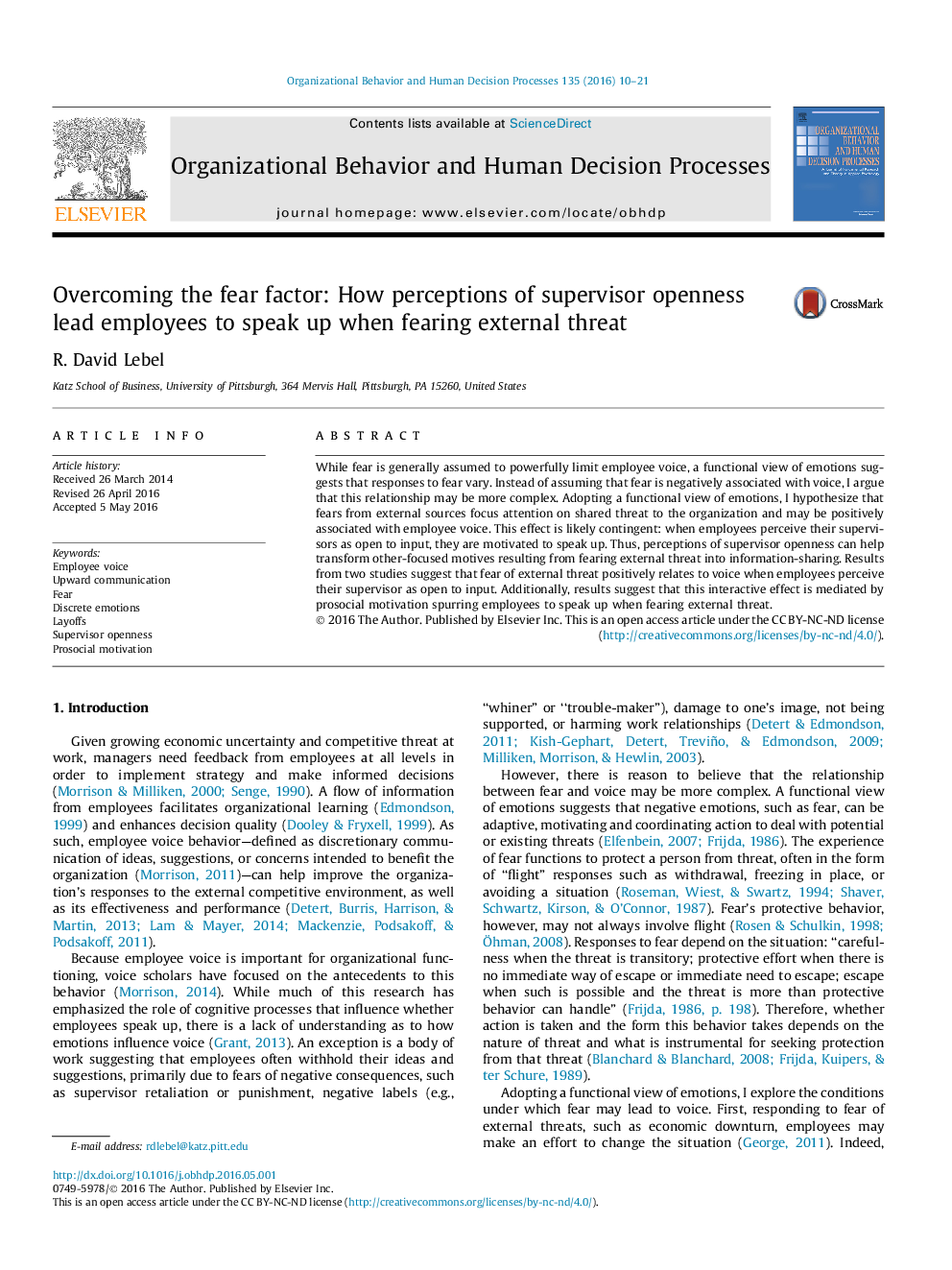| Article ID | Journal | Published Year | Pages | File Type |
|---|---|---|---|---|
| 7248151 | Organizational Behavior and Human Decision Processes | 2016 | 12 Pages |
Abstract
While fear is generally assumed to powerfully limit employee voice, a functional view of emotions suggests that responses to fear vary. Instead of assuming that fear is negatively associated with voice, I argue that this relationship may be more complex. Adopting a functional view of emotions, I hypothesize that fears from external sources focus attention on shared threat to the organization and may be positively associated with employee voice. This effect is likely contingent: when employees perceive their supervisors as open to input, they are motivated to speak up. Thus, perceptions of supervisor openness can help transform other-focused motives resulting from fearing external threat into information-sharing. Results from two studies suggest that fear of external threat positively relates to voice when employees perceive their supervisor as open to input. Additionally, results suggest that this interactive effect is mediated by prosocial motivation spurring employees to speak up when fearing external threat.
Related Topics
Social Sciences and Humanities
Business, Management and Accounting
Marketing
Authors
R. David Lebel,
